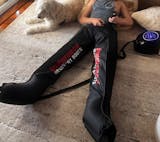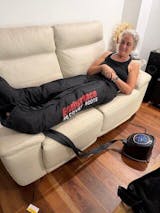Nutrition for Recovery

Ever wondered how to supercharge your post-workout recovery? Discover the key to optimising your body's repair process with the power of nutrition for recovery. Learn how to fuel your muscles, reduce inflammation, and replenish energy stores effectively. Ready to take your fitness journey to the next level? Let's dive into the world of nutrition for recovery and unlock the secrets to maximising your gains. Get ready to elevate your performance and achieve your fitness goals faster than ever before.
Key Takeaways
-
Prioritise Protein: Include protein-rich foods like lean meats, eggs, or plant-based sources in your recovery meals to support muscle repair and growth.
-
Time Your Meals: Aim to consume a balanced meal containing carbohydrates and protein within 30 minutes to 2 hours post-exercise for optimal recovery.
-
Stay Hydrated: Replenish lost fluids by drinking water or electrolyte-rich beverages after workouts to aid in recovery and prevent dehydration.
-
Focus on Nutrient-Dense Foods: Choose whole foods like fruits, vegetables, whole grains, and healthy fats to provide essential nutrients for recovery and overall health.
-
Plan Ahead: Prepare your post-exercise meals in advance to ensure you have nutritious options readily available for efficient recovery.
-
Listen to Your Body: Adjust your nutrition based on how you feel after workouts; experiment with different foods and timing to find what works best for your recovery needs.
Understanding Recovery Nutrition
Factors Influencing Recovery Nutrition
Recovery nutrition plays a crucial role in the recovery process after intense physical activity. It is influenced by factors such as the type and duration of exercise, individual metabolic rate, and overall energy expenditure.
Adequate recovery nutrition helps replenish glycogen stores, repair muscle tissue, and reduce inflammation. It also supports immune function and optimises hydration levels post-exercise.
Specific Goals of Recovery Nutrition
The primary goals of recovery nutrition include promoting muscle recovery, reducing muscle soreness, restoring energy levels, and enhancing overall performance. By providing essential nutrients promptly after exercise, the body can initiate the repair and rebuilding processes efficiently.
Consuming a balanced combination of carbohydrates and proteins within the recovery window, typically 30 minutes to two hours post-exercise, is vital for maximising these benefits.
Significance of Proactive Recovery Nutrition for Multiple Training Sessions
For athletes or individuals engaging in multiple training sessions per day or week, proactive recovery nutrition becomes even more critical. Continuous physical exertion without adequate recovery can lead to fatigue, increased risk of injury, and decreased performance over time.

Timing Your Recovery Meals
Immediate Rehydration
After intense workouts, rehydration is crucial to replenish lost fluids and kickstart the recovery process. Opt for water or electrolyte-rich drinks.
Optimal Nutrient Timing
Consuming a mix of carbohydrates and protein within 30 minutes post-exercise enhances glycogen replenishment and muscle repair. This window lasts up to 2 hours.
Body's Efficiency Post-Exercise
The body's efficiency in replenishing carbohydrates and promoting muscle repair peaks within the first 60-90 minutes after exercise. This period is vital for optimal recovery.
Eating fast food post-exercise can hinder the body's ability to rebuild effectively due to its high saturated fat and low nutrient content. Opt for whole foods instead.
Optimal Foods for Recovery
Quality Carbohydrates and Lean Protein
-
Sweet potatoes: rich in carbohydrates and vitamins, aiding in glycogen replenishment.
-
Grilled chicken breast: a lean source of protein essential for muscle repair and growth.
-
Quinoa: high in protein and amino acids, supporting muscle recovery post-exercise.
Effective Rehydration Options
-
Coconut water: a natural source of electrolytes, ideal for rehydration after workouts.
-
Watermelon: hydrating fruit with high water content, helping to replenish fluids lost during exercise.
-
Cucumber slices: refreshing and hydrating, perfect for post-workout rehydration.
Diverse Post-Exercise Nutrition Choices
-
Protein-rich options:
-
Grilled salmon: packed with omega-3 fatty acids for reducing inflammation.
-
Greek yogurt: high in protein and calcium, beneficial for muscle repair.
-
-
Carbohydrate-focused choices:
-
Brown rice: a complex carbohydrate aiding in sustained energy release.
-
Bananas: rich in potassium, crucial for muscle function and recovery.
-
-
Hybrid options:
-
Smoothie bowls: blend of fruits, yoghurt, and nuts for a balanced post-workout meal.
-
Avocado toast on whole-grain bread: combining healthy fats with carbohydrates for optimal recovery.
-
Hydration Strategies Post-Exercise
Fluid Choices
Different individuals have varied goals post-exercise, influencing the choice of fluids for hydration. Water remains a fundamental rehydration option due to its universal availability and effectiveness in replenishing lost fluids.
Electrolyte drinks offer added benefits by restoring essential minerals lost through sweating, aiding in muscle recovery and maintaining electrolyte balance. These are particularly beneficial after prolonged or intense workouts.
Dairy-based fluids, such as chocolate milk, provide a blend of carbohydrates and proteins crucial for muscle repair and glycogen restoration. Their composition makes them ideal for those seeking to enhance their recovery process efficiently.
Specialised Supplements
For individuals focusing on maximising muscle protein synthesis and reducing muscle soreness, specialised protein powders and recovery shakes can be advantageous. These supplements deliver concentrated doses of essential nutrients vital for post-exercise recovery.
-
Water: Universal rehydration option
-
Electrolyte drinks: Aid in mineral replenishment
-
Dairy-based fluids: Ideal for muscle repair and glycogen restoration
Planning Meals for Effective Recovery
Structuring Meals
When focusing on nutrition for recovery, structuring meals strategically plays a crucial role. By incorporating a balance of workout meals that include protein, carbohydrates, and healthy fats, individuals can optimise muscle recovery. This combination facilitates the replenishment of glycogen stores, aids in muscle repair, and supports overall recovery post-exercise.
Timing Intake
Timing is key when it comes to exercise feeding for recovery. Consuming a meal or snack within the first 30 minutes to two hours after a training session is vital for maximising the body's ability to refuel and repair. This immediate intake helps kickstart the recovery process by providing essential nutrients when the body needs them most.
Supporting Performance Goals
Effective meal planning isn't just about satisfying hunger; it's about fuelling the body efficiently to meet specific training and performance goals. Research shows that tailored nutrition plans can have a significant impact on overall performance and recovery outcomes. By aligning meals with individual needs and exercise routines, athletes can enhance their energy levels, improve neuromuscular function, and accelerate progress towards their fitness objectives.
Closing Thoughts
Incorporating the right nutrition for recovery, timing your meals strategically, choosing optimal foods, staying hydrated, and planning your post-exercise meals effectively are crucial steps towards maximising your body's recovery potential. By understanding these aspects and implementing them into your routine, you can enhance your overall performance, reduce muscle soreness, and boost your energy levels. Remember, the key lies in consistency and listening to what your body needs after each workout session.
Take charge of your recovery journey today by applying these insights. Your body will thank you for the care and attention you give it. Start fuelling and replenishing smartly to take your fitness goals to new heights!
Frequently Asked Questions
What is the importance of recovery nutrition?
Recovery nutrition is crucial for replenishing energy stores, repairing muscles, and enhancing overall performance post-exercise.
When should I consume my recovery meals?
Consuming recovery meals within 30 minutes to an hour after exercise optimises nutrient uptake and aids in muscle repair and glycogen replenishment.
Which foods are best for post-workout recovery?
Opt for a combination of protein and carbohydrates such as lean meats, whole grains, fruits, and vegetables to support muscle recovery and replenish energy levels effectively.
How can hydration impact post-exercise recovery?
Proper hydration post-exercise helps regulate body temperature, aids nutrient transport to cells, and supports muscle function for optimal recovery.
How should I plan my meals for effective recovery?
Plan balanced meals with a focus on nutrient-dense foods, including a variety of proteins, carbohydrates, healthy fats, vitamins, and minerals to promote efficient recovery and performance.
Research Articles:




